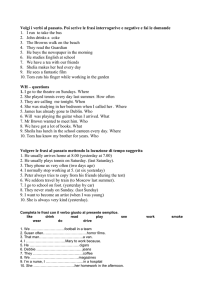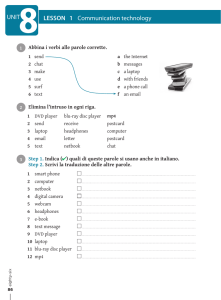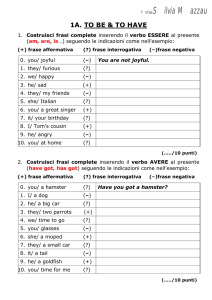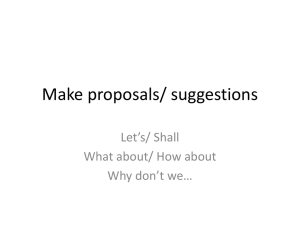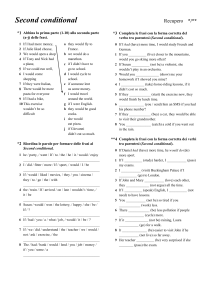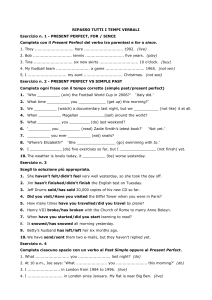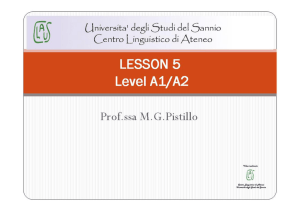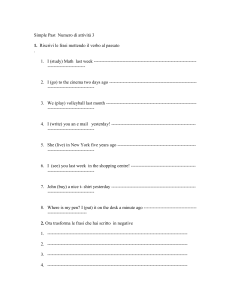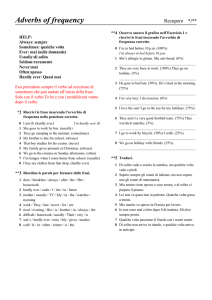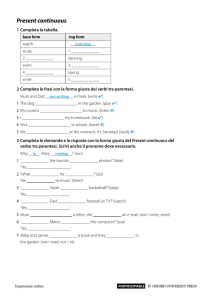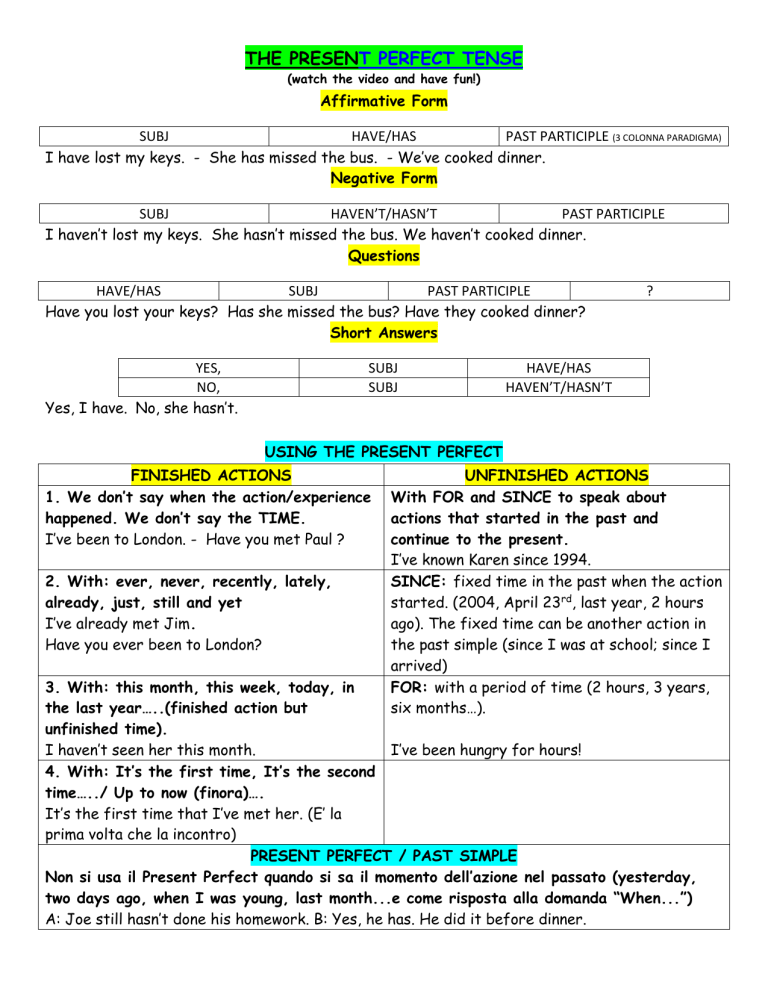
THE PRESENT PERFECT TENSE
(watch the video and have fun!)
Affirmative Form
SUBJ
HAVE/HAS
PAST PARTICIPLE (3 COLONNA PARADIGMA)
I have lost my keys. - She has missed the bus. - We’ve cooked dinner.
Negative Form
SUBJ
HAVEN’T/HASN’T
PAST PARTICIPLE
I haven’t lost my keys. She hasn’t missed the bus. We haven’t cooked dinner.
Questions
HAVE/HAS
SUBJ
PAST PARTICIPLE
Have you lost your keys? Has she missed the bus? Have they cooked dinner?
Short Answers
YES,
NO,
Yes, I have. No, she hasn’t.
SUBJ
SUBJ
?
HAVE/HAS
HAVEN’T/HASN’T
USING THE PRESENT PERFECT
FINISHED ACTIONS
1. We don’t say when the action/experience
happened. We don’t say the TIME.
I’ve been to London. - Have you met Paul ?
2. With: ever, never, recently, lately,
already, just, still and yet
I’ve already met Jim.
Have you ever been to London?
UNFINISHED ACTIONS
With FOR and SINCE to speak about
actions that started in the past and
continue to the present.
I’ve known Karen since 1994.
SINCE: fixed time in the past when the action
started. (2004, April 23rd, last year, 2 hours
ago). The fixed time can be another action in
the past simple (since I was at school; since I
arrived)
FOR: with a period of time (2 hours, 3 years,
six months…).
3. With: this month, this week, today, in
the last year…..(finished action but
unfinished time).
I haven’t seen her this month.
I’ve been hungry for hours!
4. With: It’s the first time, It’s the second
time…../ Up to now (finora)….
It’s the first time that I’ve met her. (E’ la
prima volta che la incontro)
PRESENT PERFECT / PAST SIMPLE
Non si usa il Present Perfect quando si sa il momento dell’azione nel passato (yesterday,
two days ago, when I was young, last month...e come risposta alla domanda “When...”)
A: Joe still hasn’t done his homework. B: Yes, he has. He did it before dinner.
1. EVER (mai) si usa solo in frasi INTERROGATIVE
Have you ever been to Ireland?
(tra soggetto e participio passato)
2. NEVER (mai) si usa nelle frasi negative (con verbo positive)
I’ve never been to Ireland.
(tra have e participio passato)
3. ALREADY (già) nelle frasi affermative.
We’ve already paid for the tickets.
(tra have e participio passato)
4. JUST (appena) in frasi affermative. (tra have e participio passato)
5. STILL (ancora) in frasi negative. ( prima di haven’t/hasn’t)
She still hasn’t done it. (Non l’ha ancora fatto)
6. YET: (gia’) in frasi interrogative/ (non ancora) in frasi negative
Have you spoken to her yet?
(sempre alla fine della frase)
I haven’t spoken to her yet.
(sempre alla fine della frase)
STILL AND YET – In frasi NEGATIVE HANNO LO STESSO SIGNIFICATO.
7. RECENTLY, LATELY vanno sempre in fondo alla frase.
Have you been to the doctor recently? (recentemente)
They’ve built a supermarket here lately. (ultimamente)

